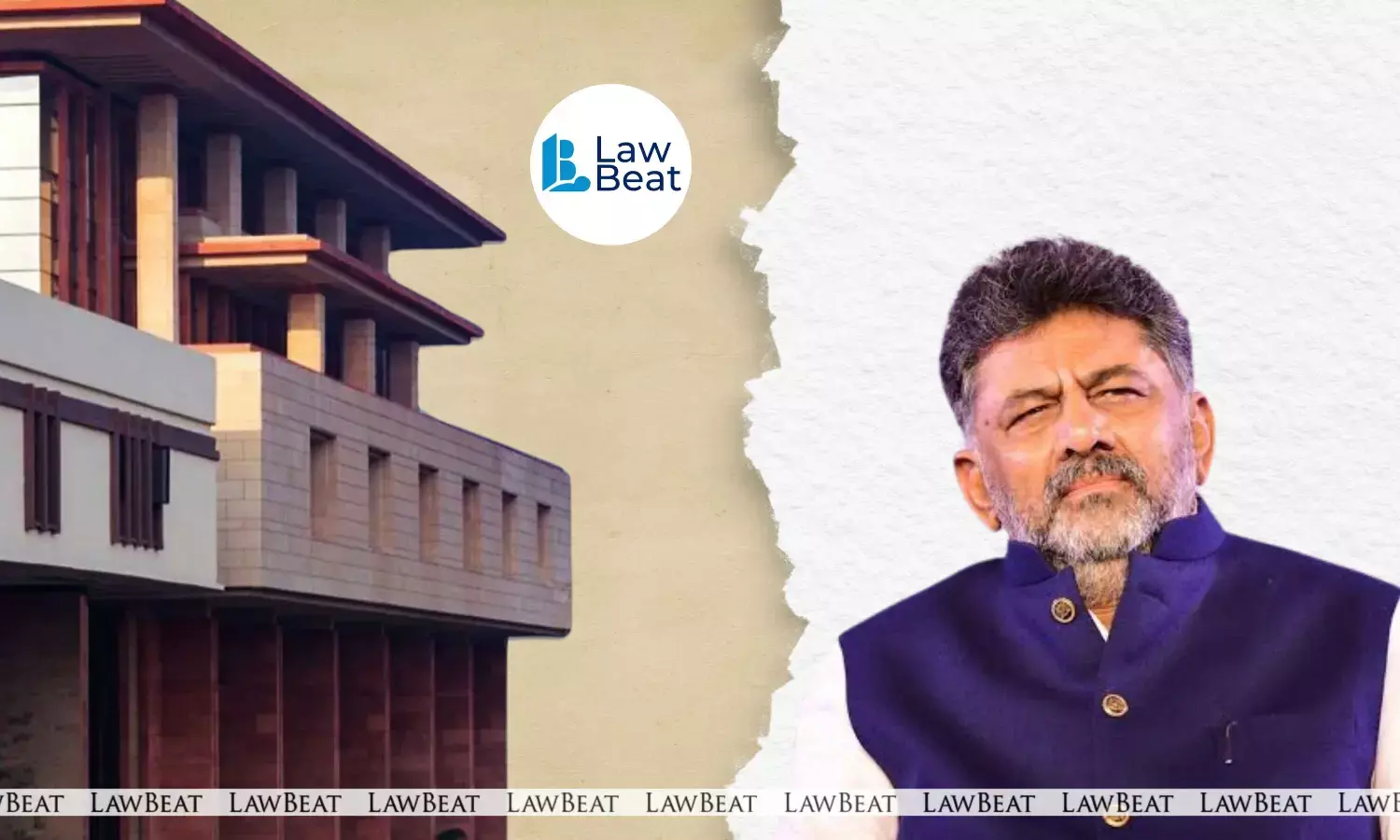ED Using Sec 120B IPC To Conduct Ominous Search and Seizure: DK Shivakumar Before Delhi HC

Karnataka Deputy Chief Minister DK Shivakumar, on Thursday, informed the Delhi High Court that the Enforcement Directorate (ED) had been misusing Section 120B of the Indian Penal Code — pertaining to criminal conspiracy — as a pretext to carry out repeated and unwarranted search and seizure operations against him. The submission was made during the hearing of Shivakumar’s plea seeking release of relied and unrelied documents from ED.
Shivakumar’s advocate argued, “I cannot be investigated again and again on the same point of issue. I have gotten bail and cannot be arrested again on the same set of facts and investigation”.
The bench of Justice Subramonium Prasad and Justice Harish Vaidyanathan Shankar presided over the matter. Additional Solicitor General (ASG) SV Raju, with Special Counsel Zoheb Hussain, represented the ED.
The counsel for Shivakumar submitted that the first Enforcement Case Information Report (ECIR) was registered based on a complaint filed by the Income Tax Department on June 13, 2018. He argued that his accounts and financial transactions were thoroughly investigated under this ECIR. He also asserted that the same facts and documents could not form the basis of a second ECIR.
The court engaged in detailed discussions about whether one or two ECIRs had been filed and under which statutory provisions. The advocate for Shivakumar contended that both ECIRs ran concurrently and included allegations under the Prevention of Corruption (PC) Act, while ASG Raju denied this, stating that no investigation occurred under the PC Act.
The bench sought clarification on whether a second offence under the PC Act could be pursued if the first ECIR had already been quashed. It also examined the relevance of Section 120B of the Indian Penal Code (IPC) — criminal conspiracy — as the predicate offence. Shivakumar’s counsel alleged that ED continued to investigate him under the guise of conspiracy charges, despite no new evidence or offences being presented.
Further, Shivakumar’s counsel submitted that he had already been arrested in connection with the first ECIR on September 3, 2019. He argued that the so-called "tainted money" was the subject of the first ECIR in which he was granted bail. “This so-called tainted money was subject matter for the first ECIR”, Shivakumar’s advocate asserted.
The advocate contended that the issuance of further summons and repeated questioning on the same grounds amounted to a violation of his legal rights. The advocate maintained that Shivakumar had cooperated fully with the ED and appeared before them when summoned, during which his statements were recorded.
However, he had not been provided with complete access to all documents related to the case, with only about 10 percent of the case files reportedly shared by the ED.
Raising concerns over procedural fairness, the counsel argued that ED had omitted from its second remand application the fact that Shivakumar had already been interrogated on identical questions earlier. He claimed that the ED had been investigating him from 1990 to 2019 and described the repeated summons as harassment. He also objected to constant interruptions by ASG Raju during submissions. Due to paucity of time, the bench scheduled the matter for continuation at 10 AM on May 23, 2025.
Background:
The Supreme Court, in July 2024, refused to quash the CBI's case against Shivakumar. A bench of Justices Bela M Trivedi and SC Sharma was hearing a plea filed against the High Court's order refusing to quash the disproportionate assets case against him.
Last year, the Apex court had declined to interfere with the Karnataka High Court's interim order, which stayed the order of the state government granting consent to the CBI to probe the case against Shivakumar.
Case Title: Dk Shivakumar v Directorate Of Enforcement (W.P.(Crl) - 2558/2022)
